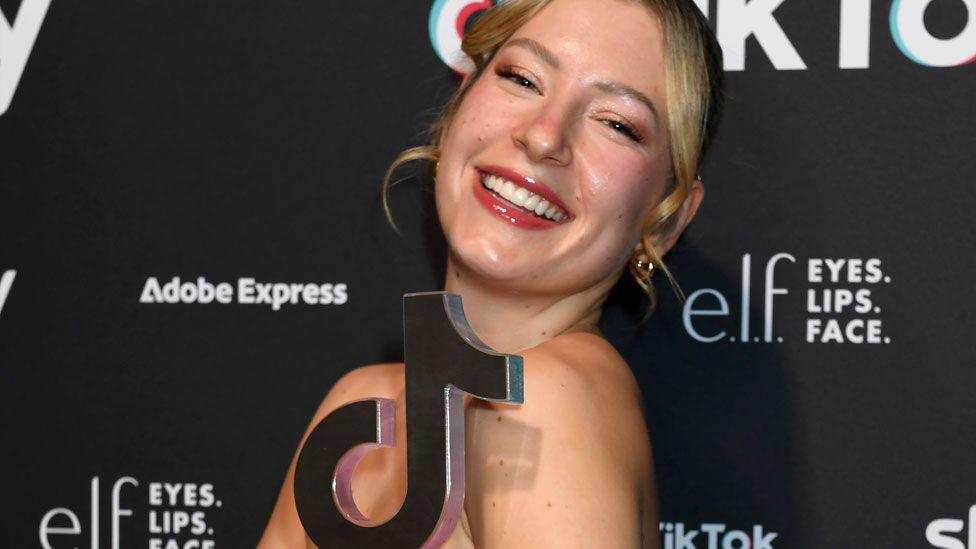Call for food influencers to post 'more honest' reviews
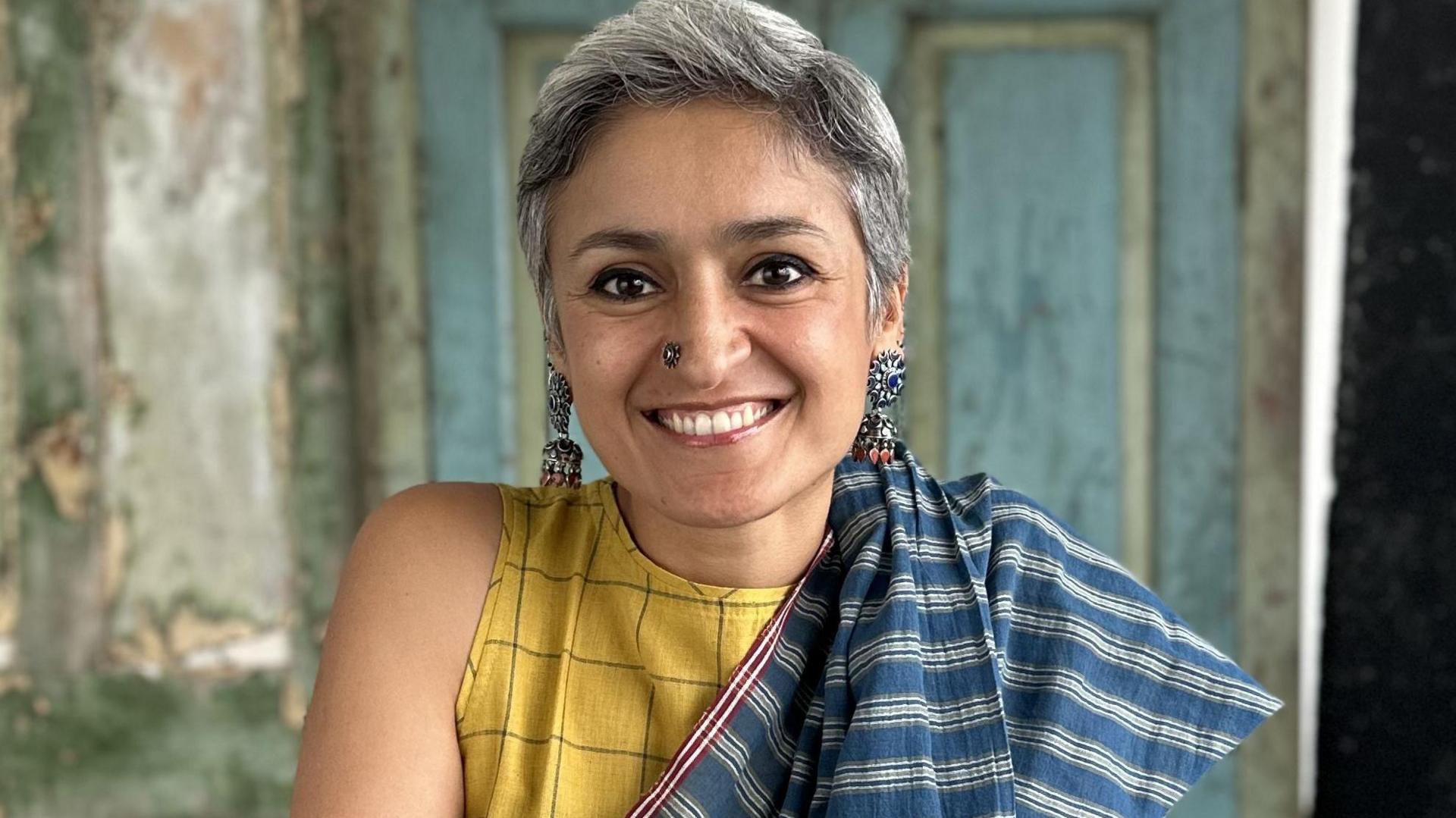
Chetna Makan is vice-president of the Food Writers Guild
- Published
Online content creators should be "more honest" in the reviews of food that they are posting online, according to the Guild of Food Writers (GFW).
Reviews of restaurants or other food outlets have become increasingly popular on video-sharing platforms such as Instagram and TikTok.
But Chetna Makan, who is vice president of the GFW, said that much of this content is "over the top", and lacks the knowledge and insight provided by traditional food critics.
Cara Jackson, who is a content creator based in Northern Ireland, said while some creators are just "doing it for views", she has "always tried to be as honest as [she] can".
Ms Makan told BBC News NI that there has been an "explosion of creators" making online videos about food, but added that she "doesn't trust" many of them.
The Guild of Food Writers is the professional association of food writers and broadcasters in the UK; its members include authors, broadcasters, columnists, content creators, and journalists.
'Not much print media left'
Ms Makan, who is the author of eight cookbooks and is herself an online content creator, said that it is "tricky" for people who want to get into the industry via traditional routes.
"There are fewer food critics in print media because there is not much print media left."
She said that while someone writing for a newspaper will have the confidence that platform brings, an independent creator might think if they talk badly about a restaurant's food, then they're "not going to get invited the next time".
She added that this fear is not unfounded, with many companies choosing to work with creators making the most "over the top and animated" content, rather than "people with real knowledge and real graft and real insight into cuisines".
Ms Makan said that these "over the top" creators are also more likely to get brand deals, where companies pay an influencer to talk about their product.
She said some influencers are "supporting every brand under the sun".
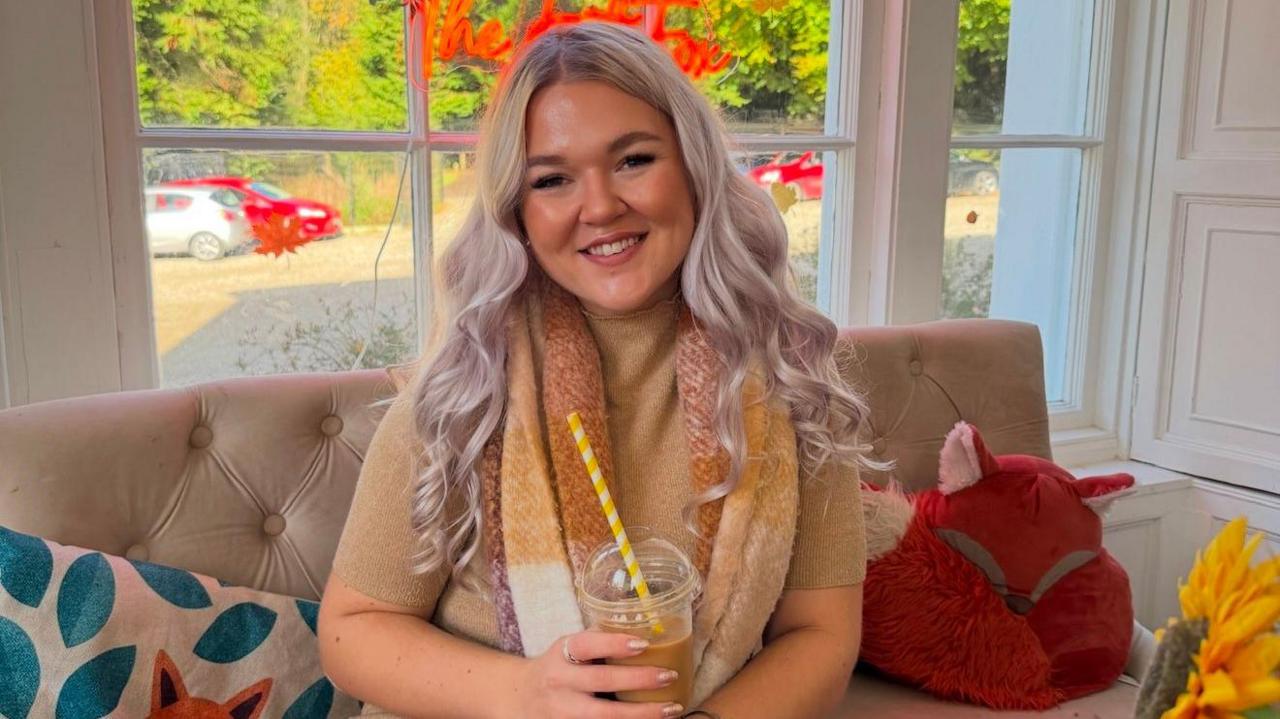
Cara Jackson said she doesn't set out to give negative reviews but will share with her followers if she has a bad experience
Ms Jackson is a content creator behind @nifoodreviews, which has over 50,000 followers on TikTok and Instagram.
"A lot of people do listen to us and go spend their hard-earned money at a restaurant," she said.
"There has been multiple times when I have created videos, and I have been disappointed with the food, and I have shared that opinion.
"We don't look out to do negative reviews, but if we do have a negative experience, we will share it."
Ms Jackson said there is space for influencers to exist alongside more traditional food critics, who she said more often review fine dining establishments.
"If you look at a new burger spot or if there's a new fast food chain… people rely on social media, and that's where they're going to get that content from."
Ms Makan said that she is not trying to encourage people to "tear into" restaurants.
"If it's good, then definitely they should say it's good, because why not? Somebody has worked hard to get it good," she said.
"I think if they just add a little more honesty when they are visiting these places, I think that is definitely needed."
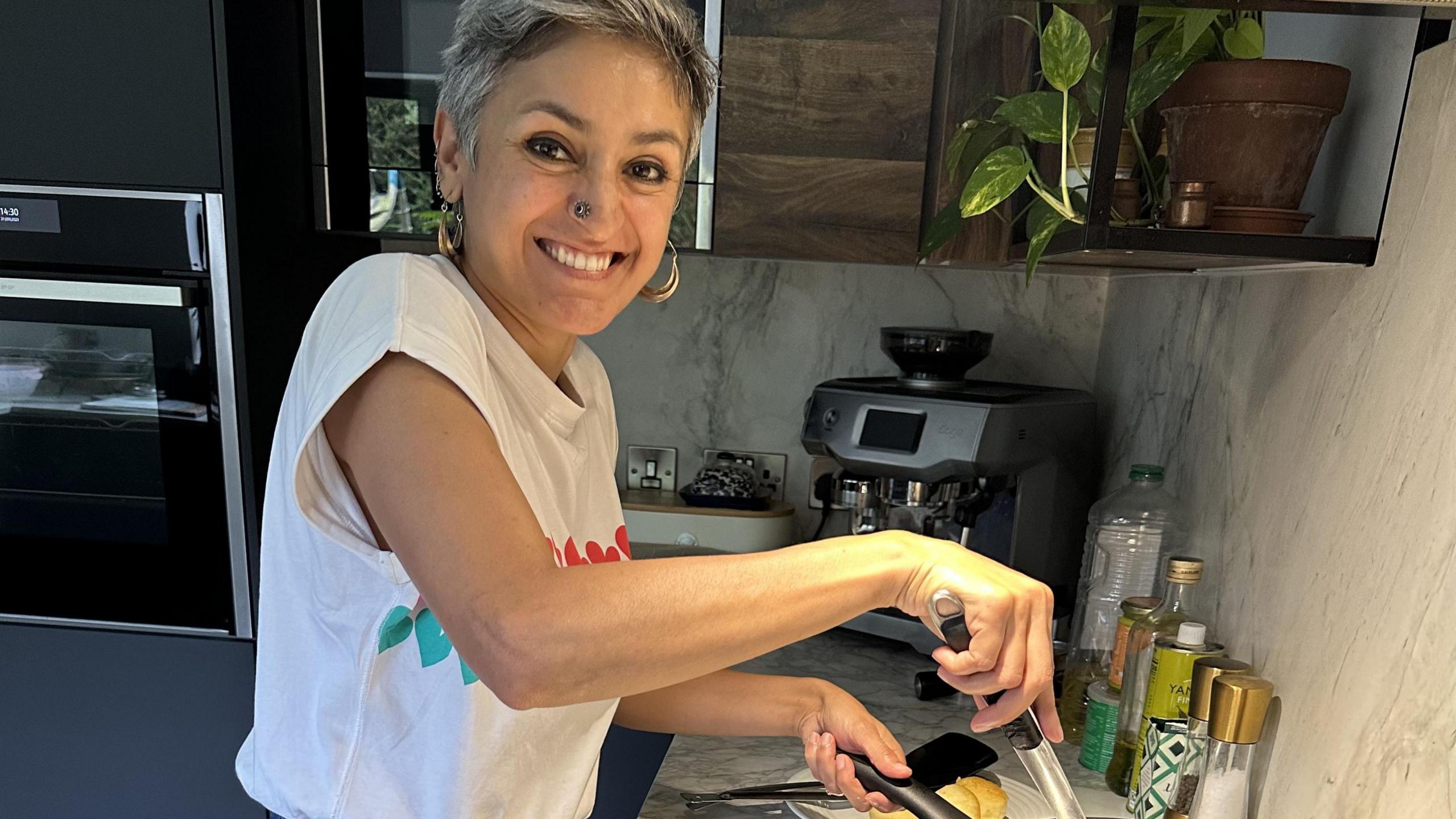
Chretna Makan is the author of eight cook books and also makes content for social media
Ashley French, an owner of the restaurants French Village and Orto in Belfast, said that influencers are a "mixed bag".
"It depends who it is really; there are ones who are genuine… then you have others who are potentially just wanting an invite to the opening of an envelope," he said.
Mr French said that while his restaurants will often be visited by influencers, he doesn't invite them or offer them payment or a discounted meal.
"Our feeling is that we would rather look after the paying public".
He said that people are more likely to decide to eat at his restaurants based on word of mouth than social media.
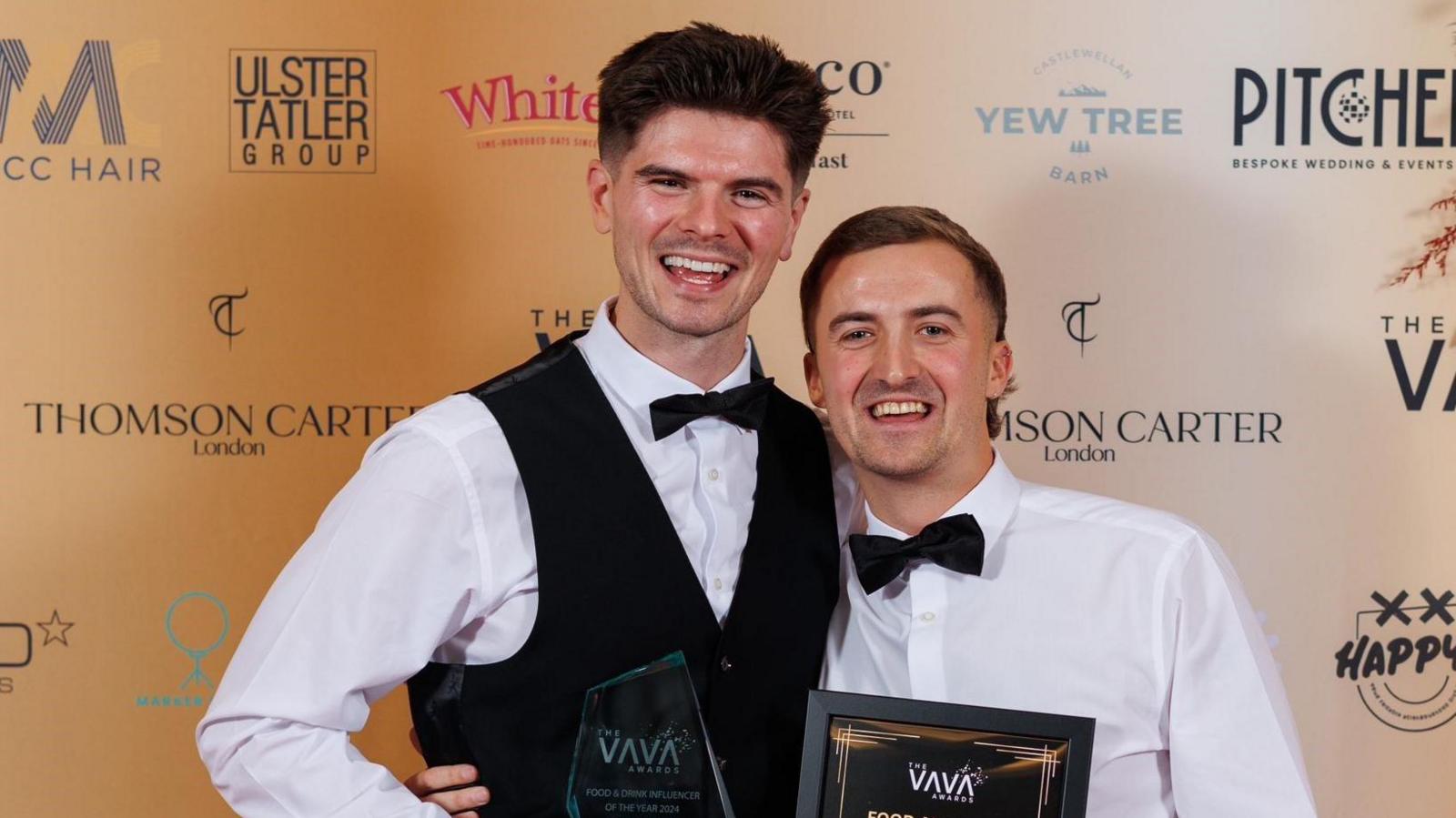
The creators behind @foodandcraic said they are "definitely" not food critics
Johnny Mooney and Ben Kane, the content creators behind @foodandcraic, told BBC News NI that they "definitely" don't consider themselves food critics.
Mr Kane said they make videos purely "to talk highly about places that we enjoy".
"If we don't enjoy the experience, we don't post it," Mr Mooney added.
"Our content allows you to visually see what you're getting... so the opinion you'll form from our content will probably be more well-rounded than from written [content]," he said.
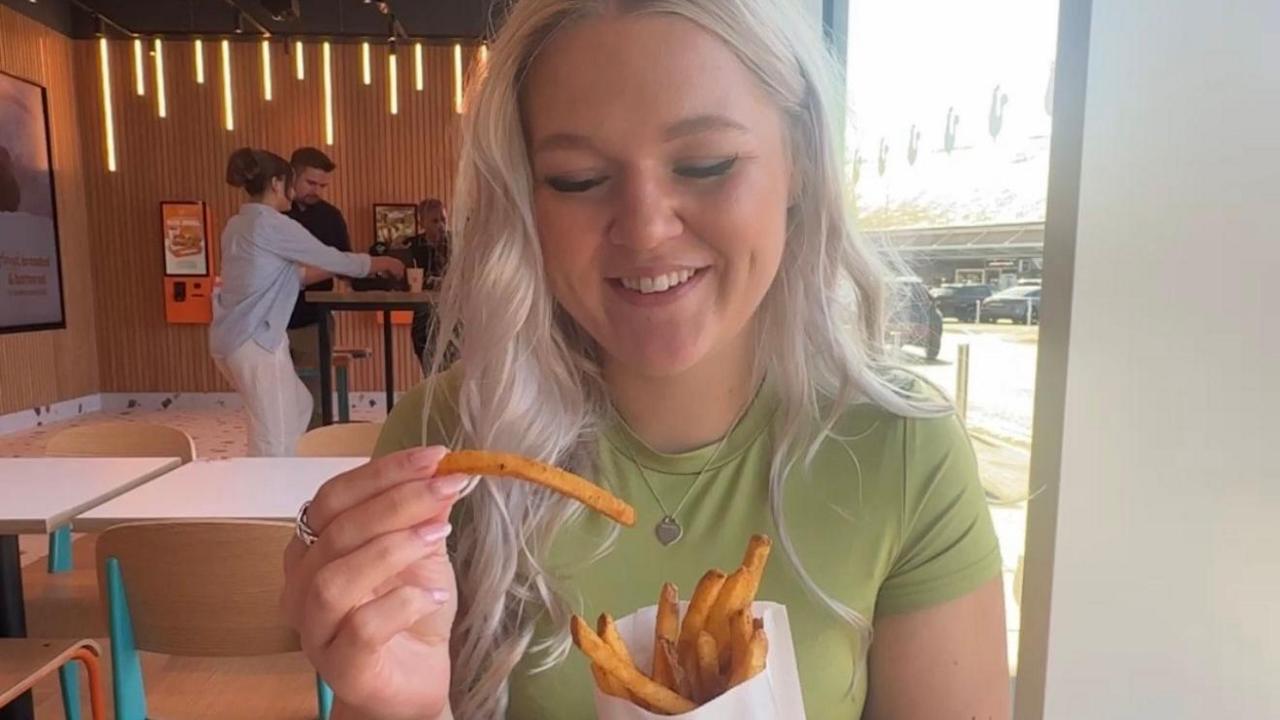
Cara Jackson said that even in paid-for content she won't recommend something that she doesn't like
Ms Jackson said branded is "very important" to help influencers "stay afloat".
But she added that she won't recommend something that she didn't enjoy in paid-for reviews.
Ed Senior, a compliance executive at the Advertising Standards Agency, told BBC News NI that the "whole point" of influencer marketing is that people can "produce advertising in a style that they know their followers connect with because it's the same as their editorial content".
"For us that's why it's exceptionally important that actually when it is advertising that it's absolutely clear that it's disclosed as such," he added.
He said that if a brand asks a creator to make content and pays them either with money or with a free or discounted meal, then it should be classified as advertising.
He said that once something is disclosed as advertising, it also needs to meet certain regulations, including whether it is "accurate and fair".
Alongside work educating creators, Mr Senior said that "targeted enforcement action, when necessary against those [creators] who are established, helps to bring about compliance from the sector as a whole".
Related topics
- Published25 January
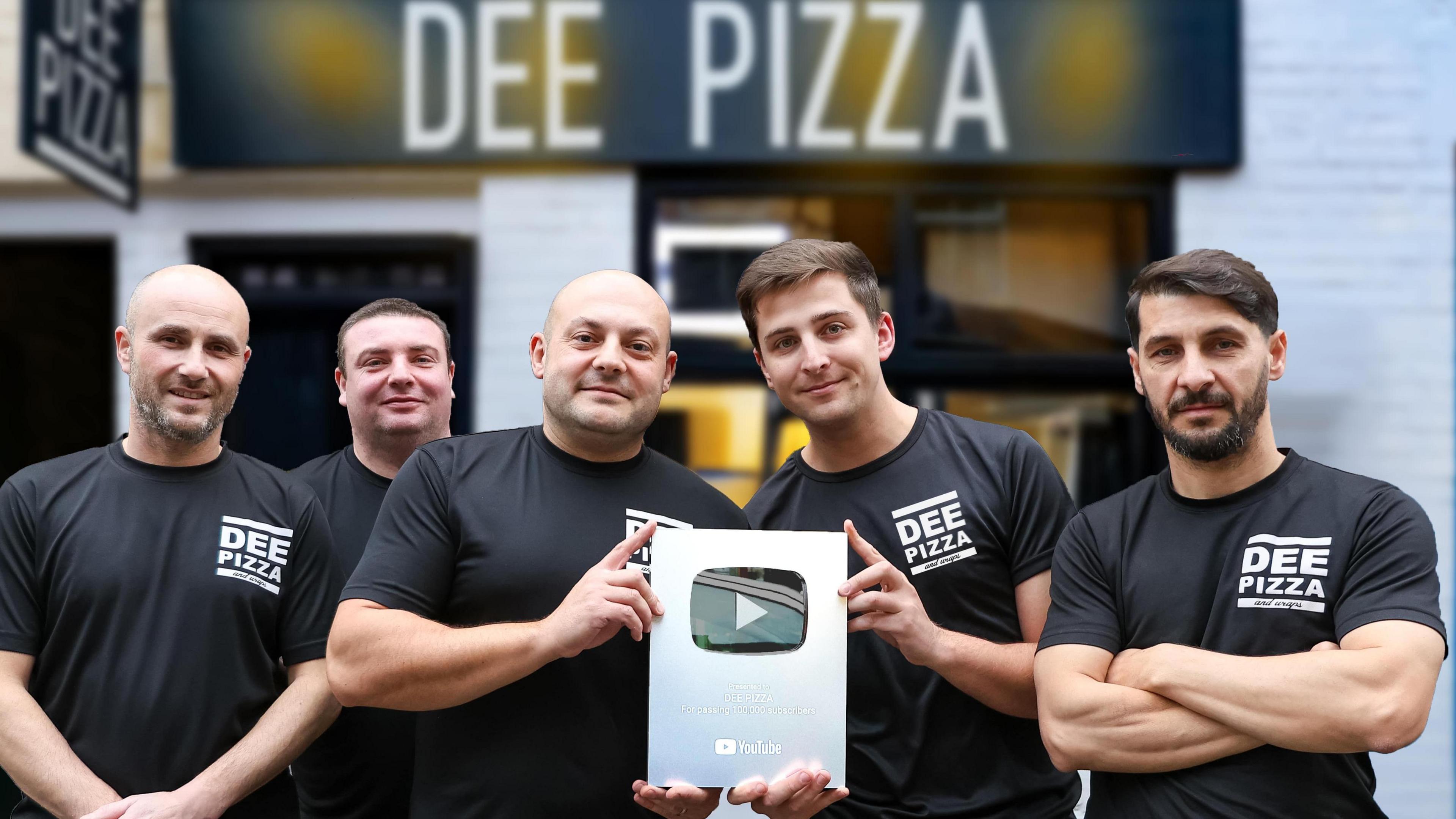
- Published24 August 2024
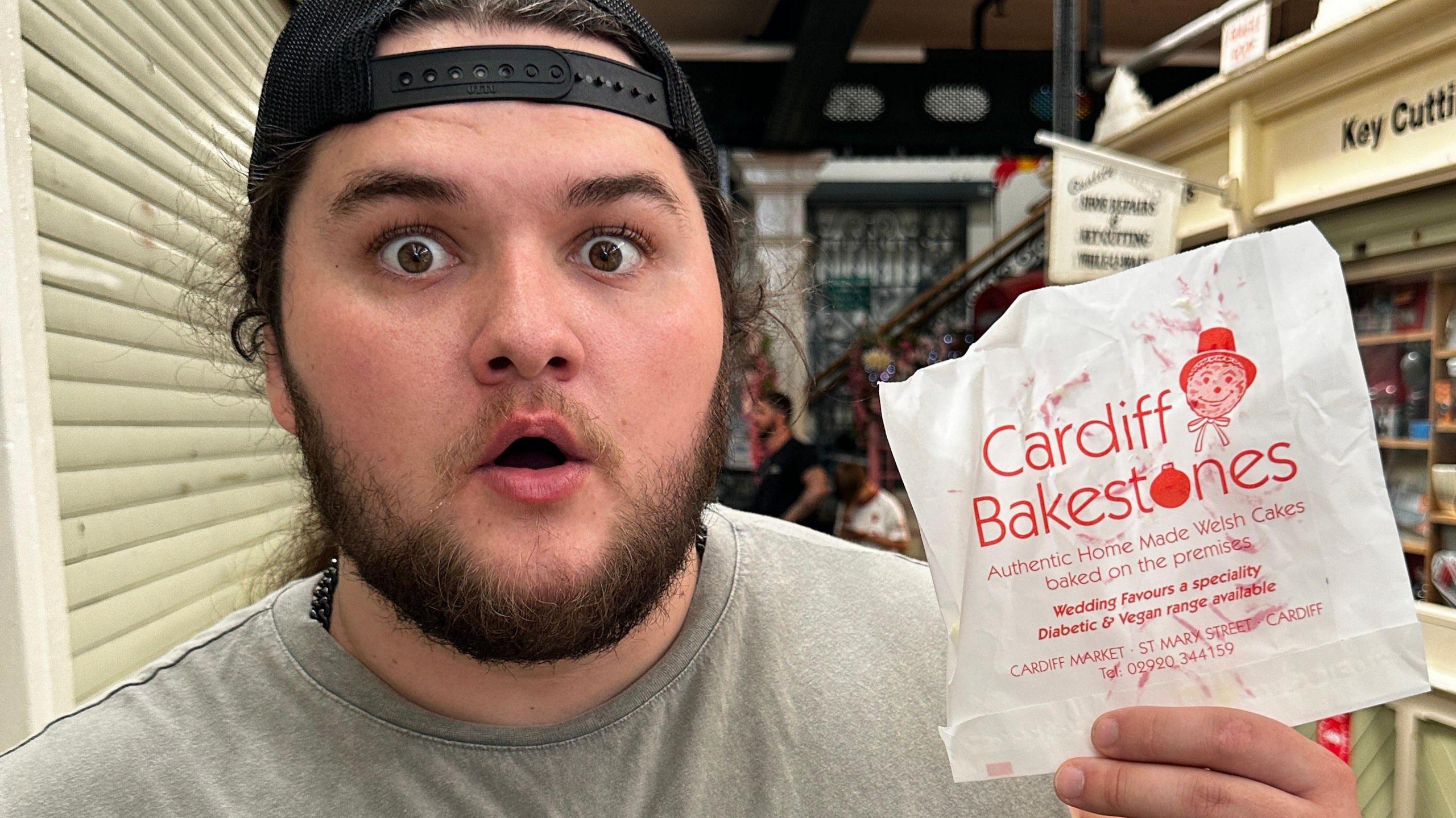
- Published3 December 2024
